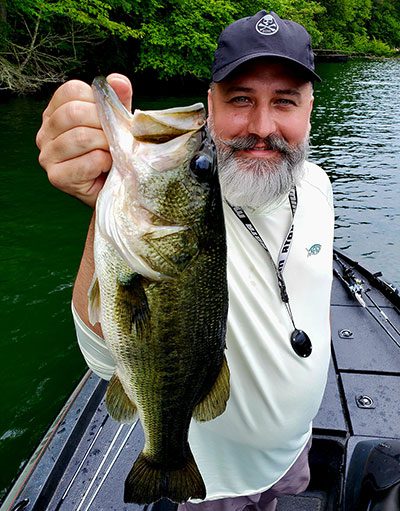The cooling of the waters has started since the cool nights and shorter days have happened. In the beginning of September the summer pattern ended within 2 weeks, and anglers noticed that the summer spots they have been using had no fish in them. What do you do when you notice that what was working is not working now?
First thing you need to do is put away those slower baits such as worms and jigs. You have to cover lots of water and selecting baits that can do that is critical. Bass start to school up as they transition into fall. They are corralling the forage off those secondary points but you still need to check all areas to find that one spot where they all are concentrated.
This is that time of year you can absolutely catch lots of quality bass. They are thinking of feeding and it is easier to get them to mess-up. When you get bass in a schooling situation their logic goes out the door since they are competing against one another. They will be more pelagic, roaming around instead of ambushing prey. Once you catch onto the pattern, it is easy to see what baits works and ones that do not.
When you think about what they are eating, select your baits that can simulate what the shad and panfish are doing. It is important to match the hatch, as the saying goes. Go for baits like topwater lures, mainly the walking baits, but when they want it subsurface, go for jerk-baits, swim-baits and spinner-baits. Keep it simple and when you find what works dial in your pattern with subtle changes to the bait line up. Always have a bait ready that you can fire out there when you can see those blow-ups. Your cadence or retrieve rate needs to be fast so no slow speeds when it comes to working those lures.
Winter is fast approaching and the cooling water happens fast, so enjoy it while you can. Things will stay changing all the time as long as the water keeps cooling off, and the closer to winter you get the more you notice the anglers will start to thin out, as most hang it up for the hunting seasons ahead. Your competition will be no more.
Scott Norton is a Western North Carolina native. Born in Asheville, N.C., he is a long-time hunter, angler and weekend warrior.
